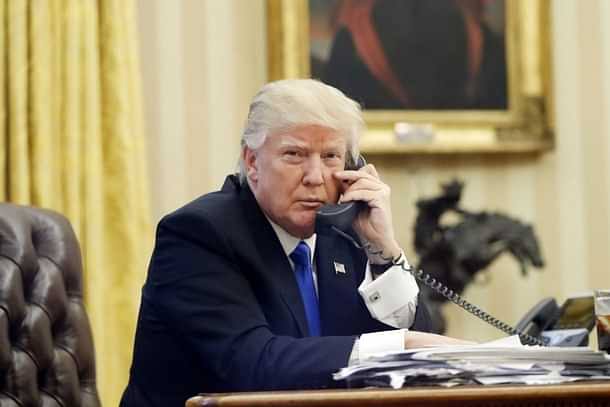In recent years, global trade dynamics have shifted dramatically, with the United States, under the leadership of former President Donald Trump, imposing significant tariffs on Indian goods. These tariffs, aimed at protecting American industries, have had a profound impact on India’s economy, affecting businesses, workers, and consumers alike. In response, a growing movement is encouraging every Indian to boycott American products to safeguard national interests and promote self-reliance. This article explores why boycotting American products is a strategic move for India and how it aligns with the vision of Aatmanirbhar Bharat (Self-Reliant India).
The Impact of Trump Tariffs on India
The Trump administration introduced tariffs on a range of Indian exports, including steel, aluminum, and agricultural products, citing trade imbalances and the need to prioritize American manufacturing. These tariffs have increased the cost of Indian goods in the U.S. market, reducing their competitiveness and impacting industries that employ millions of Indian workers. Key sectors affected include:
- Steel and Aluminum: Tariffs of 25% on steel and 10% on aluminum have hurt Indian exporters, leading to reduced revenues and job losses.
- Agricultural Products: Indian farmers and exporters face higher costs for products like spices, rice, and textiles, limiting their market access.
- Pharmaceuticals and IT: Restrictions and visa policies have indirectly affected India’s pharmaceutical and IT sectors, which rely heavily on the U.S. market.
These measures have disrupted India’s trade surplus with the U.S., strained bilateral relations, and prompted retaliatory tariffs from India on American goods like apples, almonds, and chemicals. However, tariffs alone may not be enough to counter the economic impact. A grassroots movement to boycott American products can amplify India’s response and send a strong message.
Why Boycott American Products?
Boycotting American products is not just a reaction to tariffs but a strategic step toward economic independence and national pride. Here’s why every Indian should consider joining this movement:
1. Promoting Aatmanirbhar Bharat
The Indian government’s Aatmanirbhar Bharat initiative emphasizes self-reliance and boosting domestic industries. By boycotting American products, Indians can support local manufacturers, artisans, and businesses. Choosing Indian-made goods strengthens the economy, creates jobs, and reduces dependence on foreign imports.
2. Countering Economic Pressure
Trump’s tariffs are designed to pressure India into making trade concessions. A unified boycott of American products—such as smartphones, soft drinks, fast food chains, and luxury goods—can reduce U.S. companies’ market share in India, one of the world’s largest consumer markets. This collective action can counterbalance the economic pressure exerted by tariffs.
3. Supporting Indian Farmers and Workers
The tariffs have hit Indian farmers and workers the hardest. By prioritizing Indian products, consumers can directly support local communities, from farmers growing indigenous crops to small-scale manufacturers producing Make in India goods. This shift can help offset the financial strain caused by restricted access to the U.S. market.
4. Sending a Diplomatic Message
A boycott is a powerful tool to express discontent with unfair trade practices. By reducing demand for American goods, India can signal its commitment to protecting its economic interests, potentially encouraging more equitable trade negotiations in the future.
5. Encouraging Sustainable Choices
Many American products, particularly in the fast food and consumer goods sectors, contribute to environmental degradation and unhealthy lifestyles. Boycotting these products encourages Indians to opt for sustainable, locally sourced alternatives, aligning with India’s goals for environmental conservation and public health.
How to Participate in the Boycott
Every Indian can contribute to this movement by making conscious choices in their daily lives. Here are practical steps to boycott American products effectively:
- Choose Indian Alternatives:
- Replace American soft drinks (e.g., Coca-Cola, Pepsi) with Indian brands like Thums Up, Limca, or traditional drinks like nimbu pani and lassi.
- Opt for Indian electronics brands like Micromax or Lava instead of American brands like Apple.
- Support Indian e-commerce platforms like Flipkart over Amazon.
- Support Local Businesses:
- Shop at local markets or Indian retail chains like Reliance Retail or D-Mart instead of American chains like Walmart.
- Choose Indian clothing brands like FabIndia or Manyavar over American labels.
- Raise Awareness:
- Use social media platforms to promote the boycott with hashtags like #BoycottAmericanProducts and #SupportMakeInIndia.
- Educate friends and family about the impact of U.S. tariffs and the importance of supporting Indian products.
- Advocate for Policy Support:
- Encourage policymakers to provide incentives for Indian manufacturers and reduce reliance on American imports.
- Support initiatives that promote Indian startups and small businesses.
The Economic Potential of a Boycott
India’s consumer market is a powerhouse, with a population of over 1.4 billion and a growing middle class. American companies like Apple, Coca-Cola, and McDonald’s generate billions in revenue from India. A coordinated boycott could significantly dent their profits, compelling the U.S. to reconsider its tariff policies. Moreover, redirecting consumer spending to Indian businesses can boost GDP, create jobs, and strengthen domestic industries.
Challenges and Considerations
While a boycott is a powerful tool, it comes with challenges:
- Availability of Alternatives: Some American products, like advanced technology or pharmaceuticals, may not have immediate Indian substitutes. In such cases, consumers can explore options from other countries or advocate for faster development of Indian alternatives.
- Global Supply Chains: Many products have complex supply chains, making it hard to identify their origin. Consumers should research brands and prioritize those with strong Indian roots.
- Economic Interdependence: A boycott must be strategic to avoid unintended consequences, such as impacting Indian businesses that rely on American partnerships.
Despite these challenges, the long-term benefits of reducing dependence on American products outweigh the short-term hurdles. A united effort can pave the way for a stronger, self-reliant India.
Conclusion
The Trump tariffs on India are a wake-up call for every Indian to prioritize national interests and embrace self-reliance. By boycotting American products, Indians can support local businesses, counter economic pressures, and promote sustainable choices. This movement is not just about rejecting foreign goods but about celebrating India’s potential to thrive independently. Join the boycott today, and let’s build a stronger, prouder Aatmanirbhar Bharat together!
Keywords: Boycott American products, Trump tariffs India, Aatmanirbhar Bharat, Support Make in India, Indian economy, self-reliance, trade war, Indian consumer market, local businesses, sustainable choices.
Call to Action: Share this article on social media with #BoycottAmericanProducts and #SupportMakeInIndia to spread the word and inspire others to join the movement for a self-reliant India!












